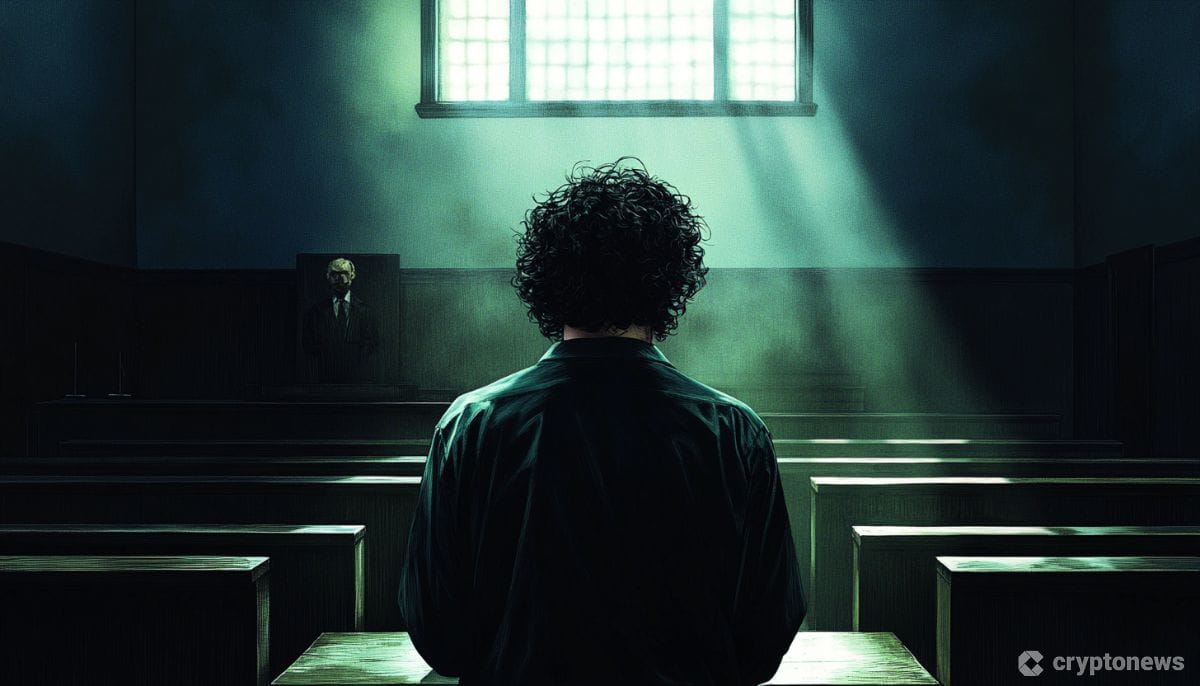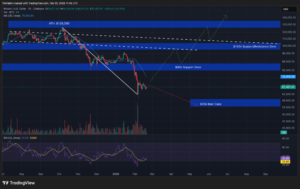Last updated:
 Why Trust Cryptonews
Why Trust Cryptonews

Sam Bankman-Fried’s criminal trial may have been significantly affected by his neurodivergence disorders, according to a group of doctors who submitted an amicus brief in support of his appeal.
The FTX co-founder, who has been diagnosed with autism spectrum disorder (ASD) and attention-deficit/hyperactivity disorder (ADHD), faced “serious challenges” during the court proceedings, the doctors told the Second Circuit Appeals Court.
The brief, signed by eight doctors specializing in neurodivergence, highlighted that several rulings during the trial were detrimental to Bankman-Fried due to his conditions.
Criticism Might Have Impacted SBF’s Answers
A key concern was the Manhattan district court’s decision to allow government prosecutors to cross-examine Bankman-Fried without a jury present before he took the stand in front of jurors.
This ruling, they argued, had “potentially profound effects” on his ability to communicate effectively during the trial.
The doctors noted that the judge repeatedly criticized Bankman-Fried for his lengthy answers and attempts to clarify or rephrase questions, behaviors that are common in individuals with ASD, who often interpret language literally.
They stated that this criticism led Bankman-Fried to adjust his responses before the jury, resulting in extremely brief, often one-word answers, such as “Yup,” which could be misinterpreted as arrogance or indifference.
The brief also pointed out that the lack of access to essential FTX documents and proper ADHD medication further hindered Bankman-Fried’s ability to defend himself.
The doctors explained that individuals with ASD often rely on concrete documentation to anchor their responses.
The absence of such materials can leave them appearing uncertain or evasive, which could have influenced the jury’s perception of Bankman-Fried during the trial.
Additionally, the doctors highlighted the impact of inadequate ADHD medication on Bankman-Fried’s performance.
For the first three weeks of the trial, he was not provided with the necessary extended-release medication doses required to maintain focus.
This deprivation, they argued, likely affected his ability to engage effectively in the proceedings, potentially leading to withdrawal symptoms that further impaired his concentration.
Law Professors Express Concern About SFB’s Trial
The amicus brief also coincided with another filing by a group of bankruptcy law professors who expressed concerns about the intersection of FTX’s bankruptcy case and Bankman-Fried’s criminal trial.
Although they did not take a stance supporting either side, the professors argued that the cooperation between the FTX bankruptcy estate and the prosecution could set a “dangerous precedent,” encouraging the use of Chapter 11 proceedings to bolster parallel criminal prosecutions.
They pointed out that the assistance provided by the FTX bankruptcy estate to the prosecutors was “extraordinary compared to previous cases” such as Enron and WorldCom in the early 2000s.
The professors also criticized the rapid pace of Bankman-Fried’s trial, which, they claimed, led jurors to believe — erroneously — that FTX customers would receive no compensation.
This was despite the fact that, as of May, the FTX estate had stated it had enough assets to repay creditors, with potentially billions in compensation available.
Bankman-Fried was sentenced to 25 years in prison in March for defrauding FTX customers of $11 billion.
















